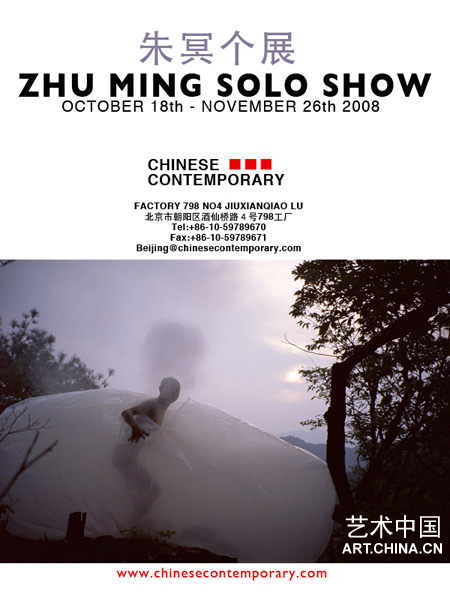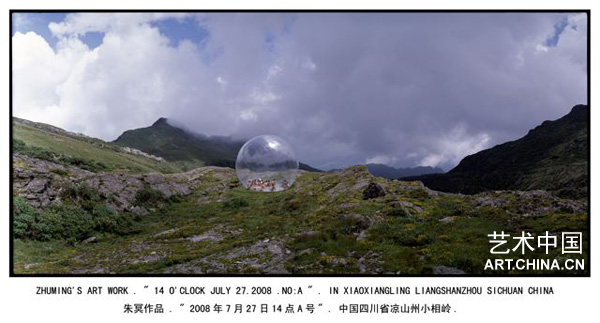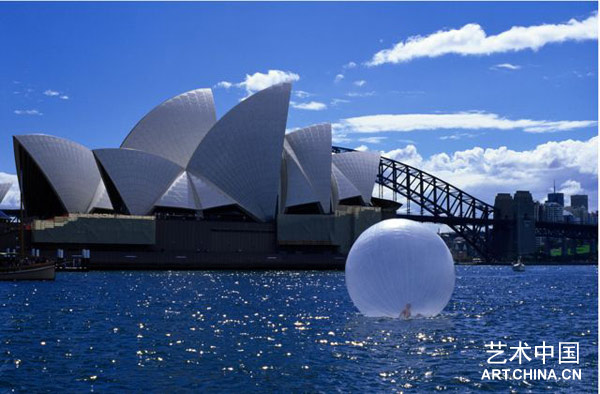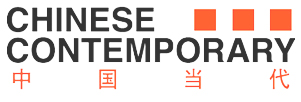
中國當代藝術(shù)畫廊
朱冥個人展
2008年10月18日-11月26日
預(yù)展:2008年10月18日3pm
中國當代藝術(shù)畫廊很高興向您發(fā)佈Zhu Ming的個人展展訊。展品包括攝影,雕塑,油畫。展覽將定於2008年10月18日至11月26日。地點位於北京798藝術(shù)區(qū)的中國當代藝術(shù)畫廊。預(yù)展于2008年10月18日,屆時藝術(shù)家本人會到場。
作為著名的東村藝術(shù)家中的一員,朱冥被認為是90年代初的行為藝術(shù)的發(fā)起者,他打破了中國傳統(tǒng)對、裸體的藝術(shù)使用的禁忌。在早年的藝術(shù)創(chuàng)作中被排擠甚至被關(guān)押,朱冥將他裸露的身體放置在形體各異的圓形氣球當中, “發(fā)光人” 暗示了人類的生存是脆弱的,最終是孤單的。“泡泡系列” 展示了中國傳統(tǒng)對“氣”的概念,同時暗示了生命的暫時性。出於藝術(shù)要求,藝術(shù)家將自己放置在肥皂泡沫中,或者在塑膠氣球中。經(jīng)常,這些藝術(shù)要求對他的身體是一種挑戰(zhàn)。
藝術(shù)家經(jīng)常將自己放置在極端的物理條件之下,比如稀薄的空氣,在自己的身體上用有害的熒光顏料作畫,隨時面臨被淹死的可能-藝術(shù)家的身體與所使用的材料和藝術(shù)之深刻形成對比。我們經(jīng)常不能肯定那些氣球是為了遮擋外界的衝擊,或,氣球本身的短暫性暗示了裏面生命的短暫性。藝術(shù)家在2003年3月8日在澳大利亞、雪梨港口的藝術(shù)行為説明瞭這一點,鯊魚活動著的水域中有一個塑膠氣球承載著一個生命。四川涼山州,藝術(shù)家在25000里長征的一個標誌性地段上,實施了他的氣球行為藝術(shù),作品“2008年7月27日”。此作品被有關(guān)部門指控為無利於和諧社會。作品“2008年7月27日”的意義在於展示早期中共的根據(jù)地的意義隨著時間而逝去,取而代之的是人類以圓形的形態(tài),自然地重生。藝術(shù)家將展示攝影作品,雕塑作品和油畫作品,屆時將更好地講述此次的行為藝術(shù)。
藝術(shù)家朱冥,作為國際知名的藝術(shù)家,曾經(jīng)被資助先後去德國,日本,義大利,奧地利和英國展示自己的藝術(shù)。攝影作品曾在“介於過去和未來之間-來自中國的攝影于攝像作品”紐約當代藝術(shù)學院 / 維多利亞&阿爾伯特,倫敦。(“Between Past and Future – New Photography and Video from China”2004, Institute of Contemporary Art, New York; Victoria & Albert, London)並展覽于國際知藝術(shù)活動 FIAC 2001年,藝術(shù)科隆 2001年(ART Cologne 2001),51界威尼斯雙年展。 Waterways 2005年。

Chinese Contemporary Gallery
Zhu Ming Solo Show
October 18 – November 26, 2008
Opening: October 18 2008, 3 pm
For immediate release –Chinese Contemporary is pleased to announce a solo exhibition of Zhu Ming’s photography, sculpture and oil paintings that will be on display October 18 – November 26, 2008 at Chinese Contemporary’s Beijing gallery in Factory 798. The opening will be October 18, 2008 at 3 pm and the artist will be present.
A member of the famous East Village (Dong Cun) artists, Zhu Ming is considered one of the original performance artists of the 1990s who shattered the ingrained notion in China of the body as taboo. Marginalized and even jailed by the Chinese government during the early years of his production, Zhu Ming has cast his naked body in a variety of raw, experimental Bubble and Luminescent Man performances that hint at the fragility and ultimately singular experience of human existence. The Bubbles Series serve as a reference to the Chinese traditional concept of qi (air, gas) and as a symbol of the transience of the human life cycle. Zhu Ming’s performances consist of either enveloping himself with an immense blanket of sudsy bubbles or encasing himself within a plastic balloon, often in brutal and physically demanding ways.
Subjecting his body to extreme conditions– such as a lack of air, toxic florescent body paint or the threat of drowning – Zhu Ming’s slight body stands in contrast to the enormity of the materials and the intensity of his performance. It is often unclear whether the bubbles shield him against external forces or whether their translucent skin emphasizes the vulnerability of the naked figure within. This tension is apparent in the artist’s March 8, 2003 performance, executed in the waters of Sydney Harbor, Australia, which draws a fine line between the protection of the buoyed bubble and the threat of the shark infested water. In his latest ‘July 27, 2008, Liangshanzhou, Sichuan’ work, Zhu Ming recruited participants to set one of the camping grounds of Mao’s Long March as the stage for a Bubble performance. Once persecuted by the authorities for what they viewed as being antagonistic to the social order, ‘July 27, 2008’ highlights the passage of time with the death of the historical spot as a communist stronghold and the rebirth of the men to a natural state within the circular form. To accompany his photography, Zhu Ming will also exhibit sculptural works and oil paintings that are an extension of his performance works.
An internationally acclaimed artist, Zhu Ming has received funding to perform in Germany, Japan, Italy, Australia and England. His photography has been included in the groundbreaking show “Between Past and Future – New Photography and Video from China” (2004, Institute of Contemporary Art, New York; Victoria & Albert, London) and has been shown in important fairs such as FIAC (2001), ART Cologne (2001) and the at the 51st Venice Biennale – WATERWAYS 2005.


|

